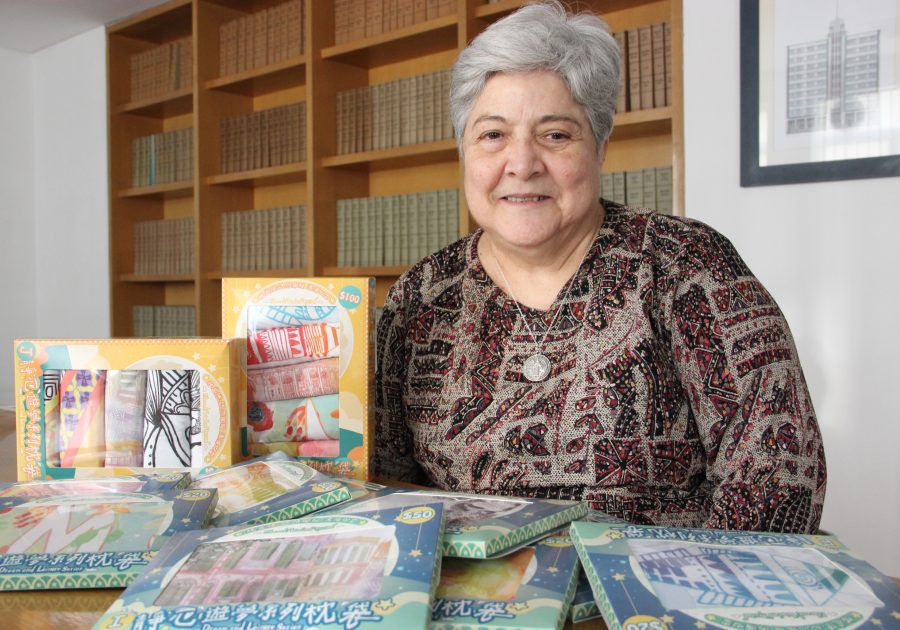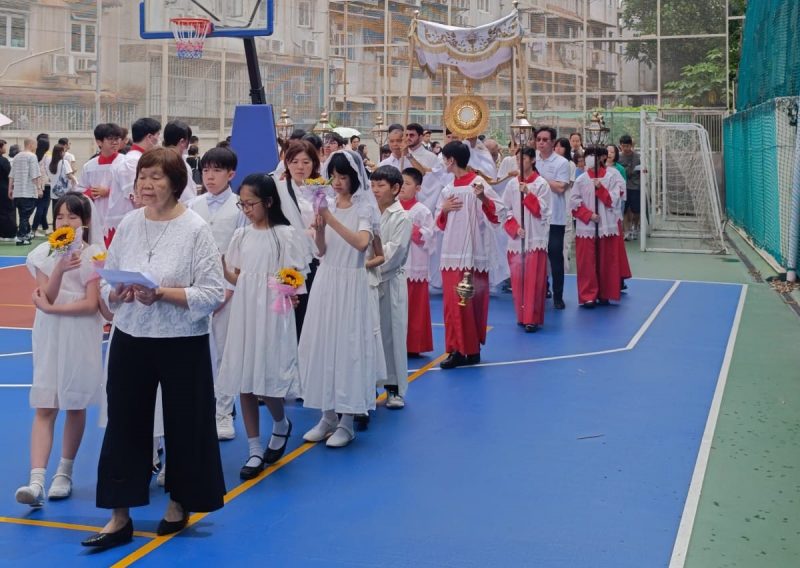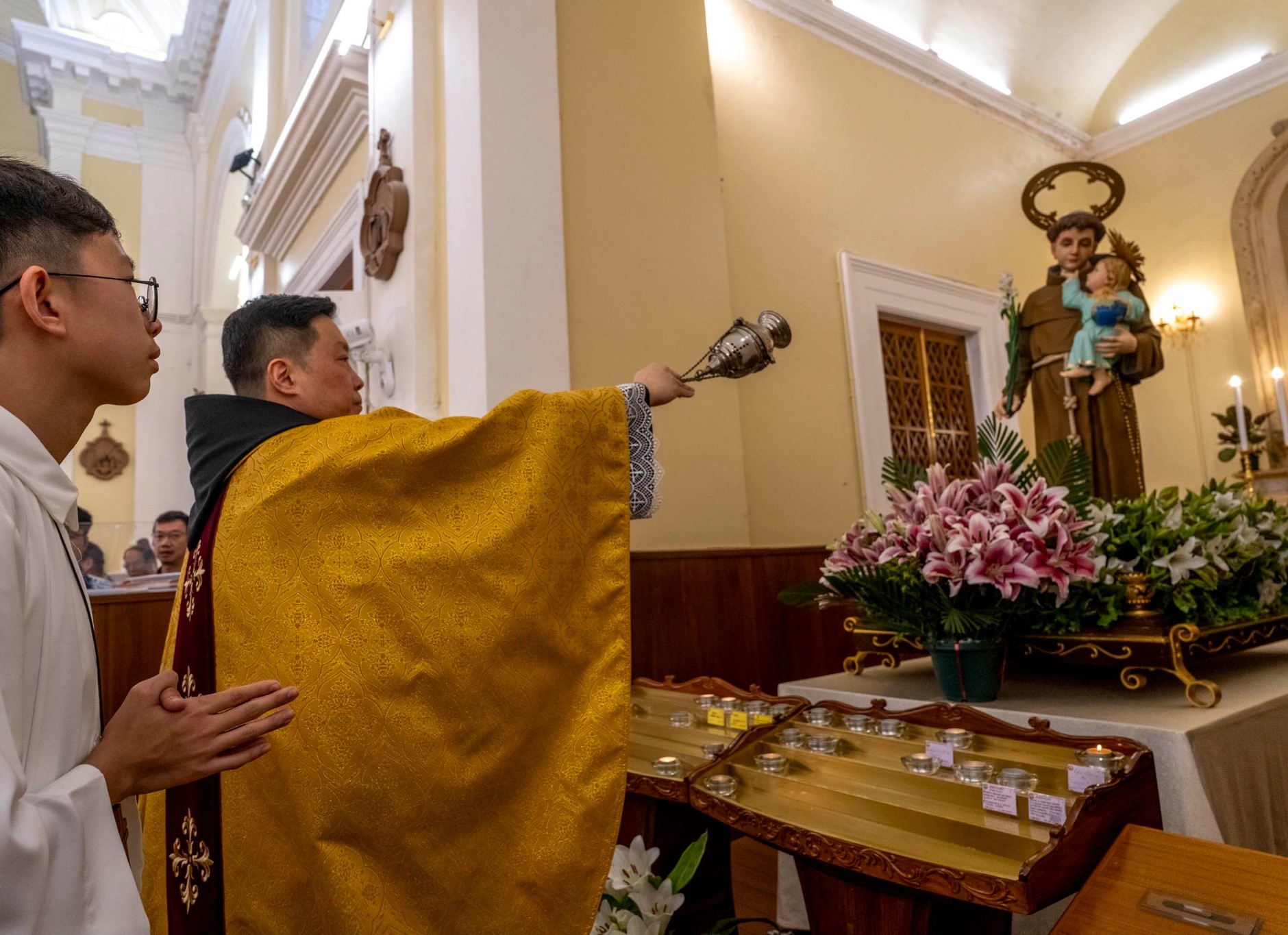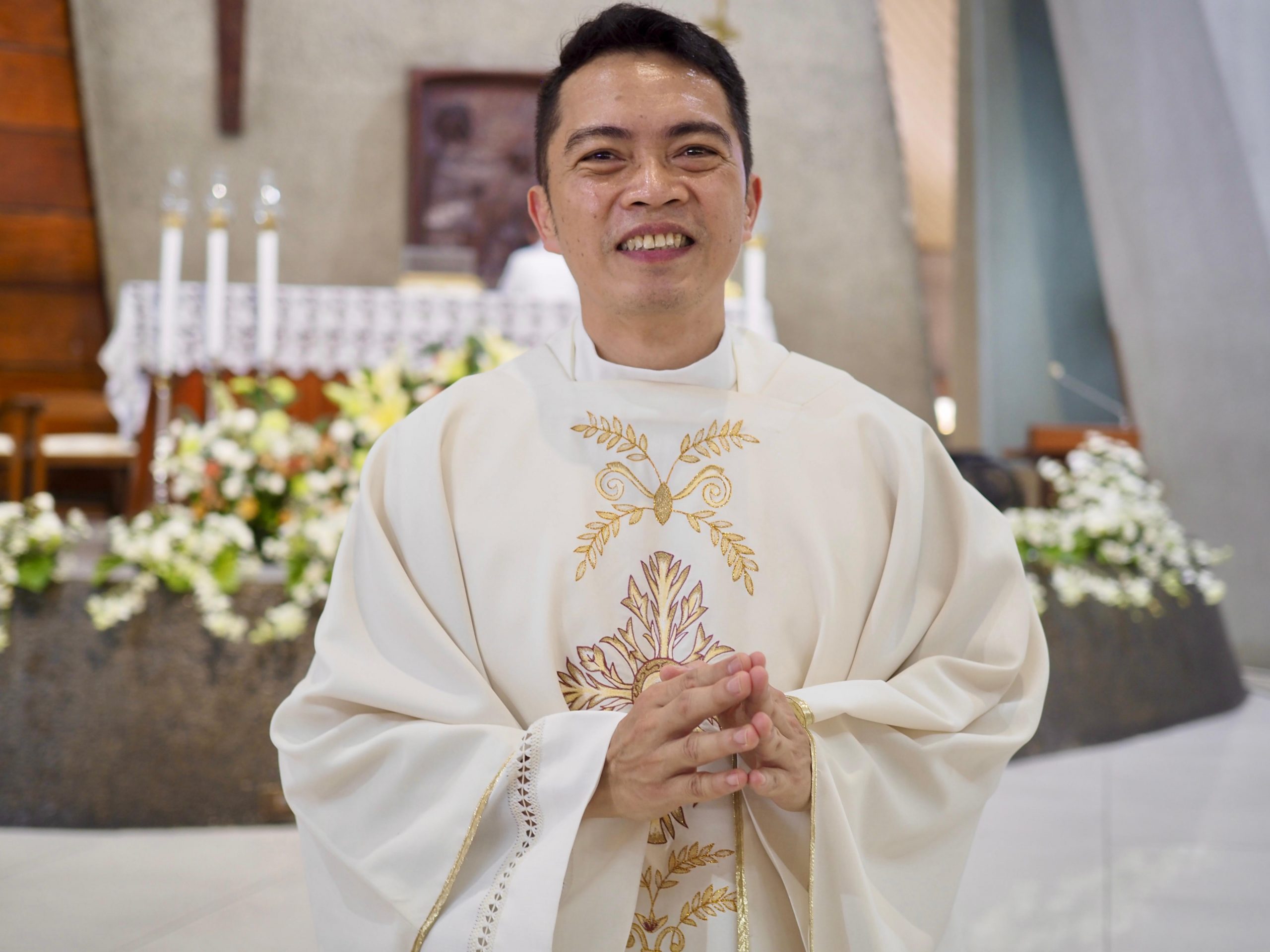Marco Carvalho
The prolonged economic impact of the COVID-19 pandemic forced Macau charities to work things out and devise mechanisms and strategies to generate their own revenues. The local non-profit-organizations are increasingly dependent on their own abilities. In the case of the Fu Hong Society, the gifts and products designed by the institution’s users have always been an important source of income, but the impossibility of selling them in broad, public campaigns has hindered the success of Fu Hong’s self financing efforts.
Peace, relief, leisure and dreams. These are the four concepts that inspire the latest line of designer products launched by the Fu Hong Society, a selection of eight pillowcases illustrated with different motifs, conceived by the institution’s patients.
The products – the sale of which has proved to be an important source of funding for the society – were the subject of an exhibition that was held at the atrium of the Macao Science Center earlier this month. Reusable bags, handkerchiefs and mugs – products that aroused a great interest amongst the local population in recent years – were also showcased.
The exhibition’s aim was mainly to familiarize the Macau residents with the importance of the work being promoted by the Fu Hong Society on behalf of people with intellectual disabilities, but also a solidarity call to donation, not least because the COVID-19 pandemic continues to affect the Society’s ability to generate revenue: “October and November used to be the months in which we dedicated ourselves to fundraising. In Macau it is very common to sell charity stamps in the middle of the street with the purpose of collecting funds. We don’t do that. Instead, we sell our products. I am talking about very affordable products, people buy them quite eagerly and with the money we collect we finance the development work we conduct with our patients. We believe that we can help to rehabilitate them through art,” Fátima dos Santos Ferreira told O CLARIM. “Because of the pandemic, our sales dropped substantially. We cannot ask students to sell our products in the street, for instance. We haven’t been able to do this for two years. It is only through initiatives like this and word-of-mouth practices that we have managed to dispose of our products,” the president of the General Assembly of the Fu Hong Society ascertains.
Raw talent
The almost accidental discovery of the enigmatic art of Leong Ieng Wai, a non-verbal autistic young man with an extraordinary artistic capacity, contributed, to a great extent, to the overwhelming success of the gifts and souvenirs sold by the Fu Hong Society. A discovery, Fátima dos Santos Ferreira claims, that happened merely by chance: “Since he doesn’t speak, we didn’t really know who the author of those works was. Someone found some scribbled but well-drawn papers on the floor, with cars of all shapes and sizes, everything very well detailed, with people inside. He didn’t accuse himself. He must have thought that he shouldn’t be drawing those pictures.”
The talent – raw but at the same time unpredictably refined – of Leong Ieng Wai, who became known by the “nom de plume” 0.38, stunned everybody around him. The artist’s works were transformed into everyday objects that quickly became a hit with residents and visitors: “We adapt the drawings he makes and transform them into reusable bags, cups, handkerchiefs or socks. The money we earn with his works reverts to him. We use it to buy clothes, so that he can feel proud of how he looks,” the chairman of the General Assembly of Fu Hong Society claims. “Two years ago we made scarves and handkerchiefs that were met with an extraordinary demand. We were somehow lucky because it was the 20th anniversary of the Macau handover and many associations organized dinner parties and bought our products to offer to the participants. It was a cheap investment for them. And for the Fu Hong Society it was an extraordinary encouragement,” Mrs. Ferreira says.
The panoramas – detailed, lacy and fragile – drawn by 0.38 opened the doors to the recognition of the artistic capacities of Ip Chi Kin and a handful of other Fu Hong patients, but Leong Ieng Wai still occupies a place of his own in the universe of talent nurtured by the Society. In addition to the eight pillowcases that make up the collection recently launched by Fu Hong, costing twenty patacas each, there are two others drawn by Leong, with sweeping views of the Senado Square and Sai Van lake, that are sold at higher prices.
More than the commercial value of the gifts and souvenirs created or the contribution to the financial endowment of Fu Hong’s operations, the success of the work developed by the association, founded by Fátima dos Santos Ferreira and a group of volunteers in 2003, became discernible in a much more significant way: “Art helped to integrate them and allowed families to feel proud, because they felt that their members are capable of something extraordinary. They have a disability, yes, it’s true, they are able to do something very special. The most important thing is for us to be able to discover the talent of each one of them, because each of them has some kind of talent,” Fátima dos Santos Ferreira assures. “My fight is for social inclusion. Concerning the disabled, things have improved a lot. Until recently, the Chinese community had the idea that if there was an element with these characteristics in the family, that was a sign that they might have done something very wrong in the past and now they were paying for their faults. A lot of work was done to fight this idea, because this is a cultural myth. And it was only because a lot of work was done that we managed to reach the sort of result we reached,” the chairman of the General Assembly of the Fu Hong Society concludes.
The products sold by Fu Hong – a wonderful choice for a Christmas gift – can be found in the various centres that the Society operates around the city and also at Anim’Arte Nam Van, in the Praia Grande area.


 Follow
Follow


